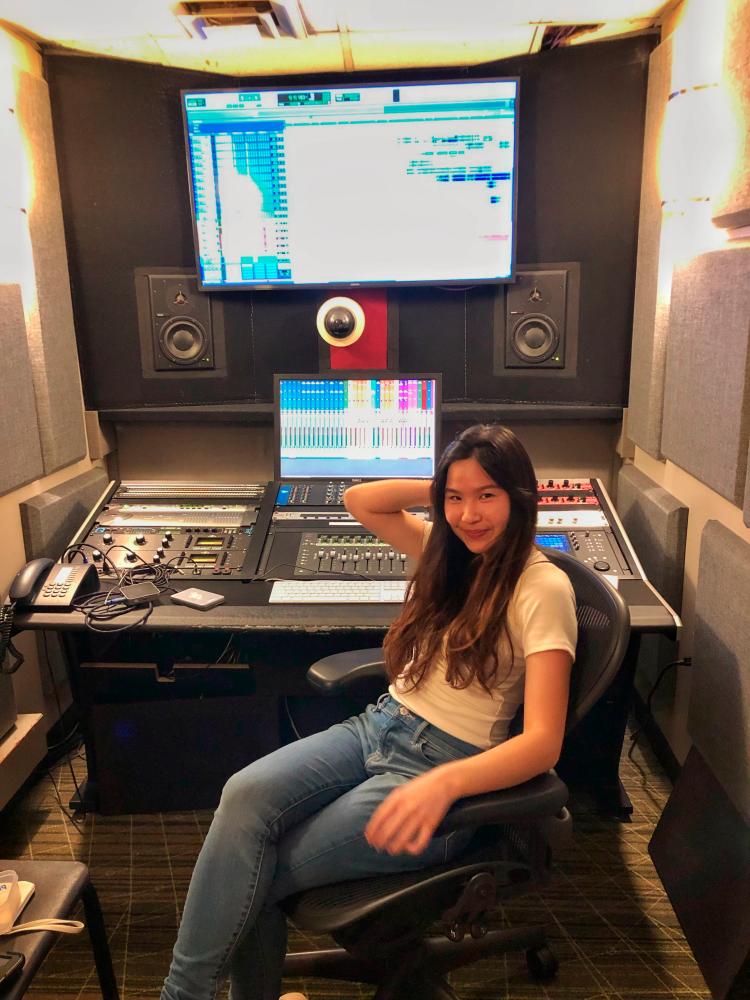IN 2018, Malaysian pianist and composer Joyce Oh Yong Yue went to Berklee College of Music in Boston to pursue a degree in film scoring. Upon graduating in 2020, she decided to stay in Boston and build her career in the United States.
To date, the 22-year-old lass has been composing soundtracks for a music library company, working as a director of media for a music meditation company based in California, and teaching young kids the joy of music in Boston.
Her recent score involved a film inspired by the “Black Lives Matter” movement.
She was also selected as a composer and a conductor to tour with the Berklee Silent Film Orchestra. She has also interned for Yuval Ron, an award-winning composer based in Los Angeles, and has arranged music for him.
Prior to that, she interned for award-winning Malaysian composer and producer Sharon Paul, and has worked with her on popular songs.
Growing up with classical piano training, Oh represented Malaysia in numerous international competitions. In future, she hopes to move to Los Angeles and create soundtracks for Hollywood films.
What is your best memory working in the music sector?
It was in a theatre in San Francisco in November 2019. I was conducting a live ensemble to the silent film The Phantom of the Opera, and I heard an audience member gasp in awe behind me. That was the first time I experienced the power of moving the audience with film music.
Who are the composers you admire?
Carlos Rafael Rivera. His work on The Queen’s Gambit was brilliant. I also admired Pinar Toprak (famous for composing the music for the movie Captain Marvel). I had the opportunity to talk to her on three occasions when I was studying in Berklee. Her savviness, perseverance and ability to adapt in Hollywood is admirable. I also admire both Sharon Paul and Yuval Ron. They are outstanding in their work and are able to manage both their work and family life.
Describe your creative process in creating a film soundtrack.
First, I watch the film a few times and understand the story. I also ask the director what he wants the audience to feel in a particular scene. Words help me conceptualise the story, which I use to produce main themes for the film. Then, I outline the film with the summary of each scene and the important sync points. I plan textures in my music – how much of this is orchestral, electronic and ethnic? I will also ask: ‘Should the music sound grand, or intimate?’
Describe your earliest experience in music.
My music education was cultivated since the age of three. The first instrument I learnt was the piano. At eight, I picked up the violin in school. During my pre-teen years, I played music with my paternal grandfather, who played the harmonica. We played for our family weddings and for leisure. He passed away in 2016.
Tell us about your family.
My father is a businessman in the travel industry, and my mother is a bank manager. My parents had the foresight to save up for their children’s education before we were born. I have one younger brother who is in his early 20s and who has just started studying for a business degree at the University of New South Wales. He also loves music and plays the drums.
What is your advice to those wishing to pursue a career in music?
Find out what is unique about you. Somebody else might be better, but they cannot make music the same way you do – which leads to my next point: practice with feedback. If you are a performer, volunteer and perform at events, join competitions. If you are a composer or a producer: compose for student films, commercials, theatre or anything you can get your hands on. Join film scoring competitions, intern for somebody and make connections. These are all valuable practice to gain experience and skills. It also helps to find a mentor, or reach out to musicians for more advice.
What has been your biggest challenge as a musician?
Taking care of my physical and mental health. Sometimes, I get too wrapped up in my work. These are common problems that most musicians face in the industry. Now, I make sure to take enough breaks when I work and know my limit.










